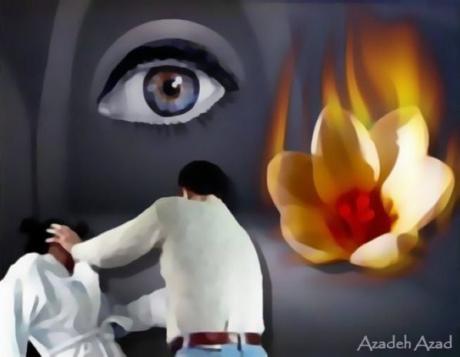
What is Patriarchy
Patriarchy (from Greek: patria meaning father and archy meaning rule), in its narrow sense, means the absolute legal and economic rule of eldest males or fathers as heads of families, over their wives, children, other dependents, including slaves, as well as property.
In its broader sense, patriarchy defines the sociological condition where male members of a society tend to predominate in positions of power; the more powerful the position, the more likely it is that a male will hold it. It is usually marked by the subordination of women, children, and those whose genders or bodies defy traditional man / woman categorization. In other words, patriarchy is a hegemonic gender order imposed through institutional, collective and individual behaviours. It is an embodied set of beliefs about the ‘’natural’’ gender order, regularly backed up by notions of biological or divine determinism, which often operates through a collective refusal to observe the effects of gender on social relations and power. One clear effect of this has been a refusal, until recently, to acknowledge the full extent of physical and sexual violence committed against women by heterosexual men.
Patriarchy is organized around an obsession with control. Men are elevated in the social structure because of their actual or presumed ability to exert control, whether rationally or through violence or the threat of violence. Women are devalued for their supposed lack of control and assumed to need men’s supervision or protection.
Patriarchal social structures are male identified: aspects of society and personal attributes that are highly valued are associated with men, while attributes and social activities associated with women are devalued. There is a sense of threat to the social structure of patriarchies when these gendered associations are destabilised – and the response in patriarchy is to increase the level of control over women (as well as groups who are devalued by virtue of race, ethnicity, sexuality, or class.)
An inherent part of patriarchy is the separation of the private sphere of family and the public sphere of economy, laws and politics. This division between the two spheres is gendered. Women are associated with the private sphere, and men with the public one. However, men dominate both spheres. In the private sphere of family, women do the procreative work of carrying children and giving birth to them, who take their father’s name, and the unpaid reproductive housework of cooking and cleaning that reproduces the husband’s work force and helps bringing up his children for future economic activities.
Patrilineal system of lineage and patrilocal family residence are inherent elements of patriarchy. In patrilineal social system, one belongs to one’s father’s lineage and takes his name or title, and the inheritance of property passes through the male line. In patrilocal system of residence (also called virilocal residence), a married couple resides with or near the husband’s parents. It defines a locus of control coming from the father’s geographic / cultural community.
In countries such as Islamic Iran and Saudi Arabia, patriarchy is distinctly visible. In the Western nations where legal equality of women and men has been established, the deep psychological and cultural roots of patriarchy survive as a belief system in the minds of many women and men. In these societies, male domination remains the underlying social structure.
Patriarchy has been the template of the authoritarian, elitist forms of social organization and governance that have tolerated, sanctioned or committed such systematic and perpetual human rights violations as sexism, racism, exploitation and oppression, and other such flagrant affront to human dignity. As Marilyn French puts it, patriarchy is a system that values power over life, control over pleasure, and dominance over happiness.
Brown, Robert. 1991. Human Universals, Temple University Press, Philadelphia, PA.
French, Marilyn. 1985. Beyond Power: On Women, Men and Morals, Ballantine Books, New York, N.Y.
—————————————————






